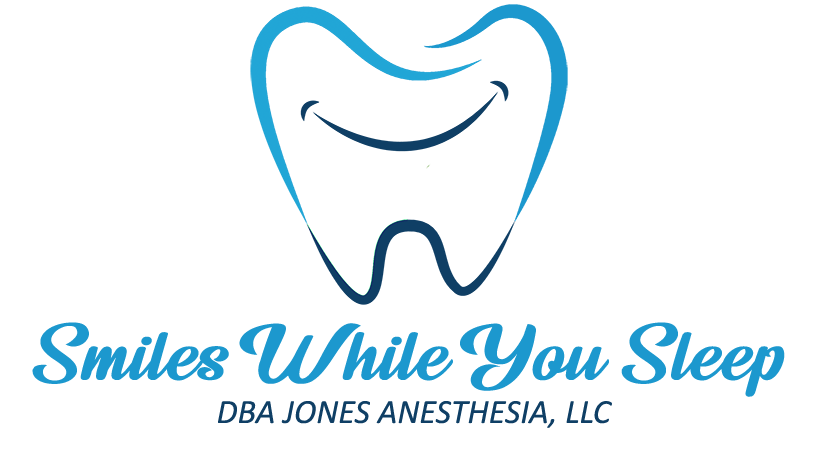Smiles While You Sleep

Dental Anesthesia Services for adults, special needs and pediatric patients in the State of Kentucky
FAQs
FREQUENTLY ASKED QUESTIONS
Why is anesthesia important?
Anesthesia eliminates any possible pain and anxiety during your procedure, and it allows the doctor more time to perform complicated procedures while you remain relaxed and comfortable.
Is Anesthesia Safe?
With Smiles While You Sleep, anesthesia is administered by certified registered nurse anesthetists (CRNA) who are extensively trained and board certified. The anesthetic medications, hospital-grade monitoring equipment, and anesthesia techniques that we use today are extremely safe. We are extremely vigilant while monitoring you throughout your procedure with the emergency medications and equipment you would find in a hospital operating room.
How will I be monitored during my surgery?
The safety and comfort of our patients is our utmost concern. Our CRNAs are diligent in monitoring and recording blood pressure, heart rate, heart rhythms, the amount of oxygen in the blood, and breathing patterns and rates from the beginning to the end of every procedure. We use blood pressure cuffs, pulse oximeters, electrocardiograms, end-tidal CO2 gas analyses, and wireless pre-cordial stethoscopes as we remain vigilant, guarding your unique needs during the surgery.
When will I feel normal again?
Typically, the effects of sedation and/or general anesthesia wear off within a few hours of your procedure, but we recommend against driving, operating heavy machinery, and making any life-changing decisions for 24 hours. Since every patient and case is different, there is no set time of when you will feel normal again, but it often depends on the dental procedure and whether you are taking any other pain medications.
What are some of the side effects of the drugs used?
Anesthetic drugs can cause mild nausea, dizziness, sleepiness, and even sore throats and minor aches as they wear off. Fortunately, it is usually the case that side effects disappear within 24 hours of leaving the office. Staying hydrated is key to a quick recovery, and Smiles While You Sleep would be happy to discuss any necessary pain medications with you before you leave our office.
What is the difference between the sedation my dentist can provide and using a CRNA for my procedure?
Minimal or moderate sedation—received in the form of a pill or an IV—can be provided in a dental office by most dentists and specialists. This level of sedation is highly effective in many situations.
The nurse anesthetists (CRNA) of Smiles While You Sleep has been trained to safely deliver all forms of sedation, including general anesthesia. At Smiles While You Sleep, we use more advanced forms of medication and equipment than found in an ordinary dental office.
Will I wake up during my procedure?
No! The only reason you would wake up during your procedure is if we gave you minimal sedation rather than a general anesthetic and intended for you to come back to consciousness. We are able to calculate the exact depth of anesthetic needed to keep you properly sedated by considering your needs, the procedure requirements, and the effects of the anesthesia.
Will my medical conditions make the anesthesia unsafe for me?
Not necessarily. The staff of Smiles While You Sleep carefully considers all aspects of your medical history when creating a safe and effective anesthetic plan. We always begin by making sure that you’re in the best possible health before administering anesthesia which ensures optimal experiences and outcomes.
What are the advantages of Office Based Anesthesia (OBA)?
….
Call Us
502-262-1080
Quick Links
Hours
Closed Sundays
Monday through Friday
Open 7am – 5pm
